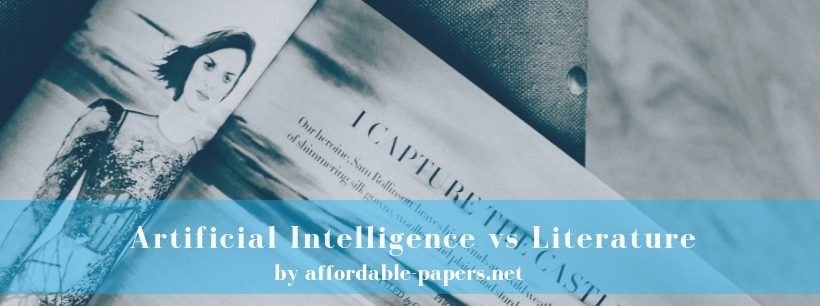According to the prognosis of many researchers, within the next decade representatives of many professions will be replaced by robots.
Teachers are among those who are afraid that their jobs will be taken by the machines. Should they worry at all? Is there a real risk that educators won’t be needed in the nearest future?

Let’s investigate whether Artificial Intelligence is indeed capable of fully replacing such a profession as a teacher. In particular, we will reflect on what’s coming next for those who teach English Literature.
Teaching profession and commercializing of the education system
After the introduction of the national curriculum, the perception of the teaching profession has changed due to regular restructuring. For quite a long time, the function of educators was closely studied by researchers. As a result, profiteers used this as an opportunity to segregate functions of teachers and turn them into products, which can easily replace many aspects of what was supposed to be exclusively done by teachers only.
Online studying materials and self-educating programs always bring profit. Moreover, schools give priority of marking to commercial companies. The benefit of this approach is dubious but it doesn’t stop education publishers to act in the direction of atomizing the teaching profession.
This tendency wreaks havoc on teacher’s self-worth and professional self-identification. Besides, the issue is not only in psychological damage to the educators but to the budget of the school in general.
Teachers are not a part of a production line
Some of those scientists who research the issue have an illusion that acquired knowledge and skills are linear. This causes misunderstanding of how certain school subjects work, especially in the case of Literature. It is believed that the progress in the study can be tracked very easily when in reality there are not so many students who get everything systematically and make consistent steady steps in the whole learning process.
If to talk about literature, it gives a unique opportunity to get into contact with the brightest minds of those who created and continues to create poems, novels, playwrights etc. We can search and find answers for various important existential questions that bother the humankind. Literary education is aimed at delving into the ways of how we make sense of how the world works. Literature is not about getting to know facts and knowledge. It is fully related to asking questions and finding fundamental answers.
Can robots facilitate this? Can they do a better job than human teachers do? Great authors can shape our consciousness and Artificial Intelligence is very unlikely to cope with this task as good as the human educator can.
Machines can stimulate the intellect by providing facts but everything that concerns emotions and creativity cannot be grasped by robots, let alone they would not be able to teach any of the subjects related to any type of artwork. Moreover, how will they check creative essays for quality? They know only about grammar and stylistic rules, there are no such creative rules in writing.
Such subjects as, for example, imaginative writing does not progress in a typical linear way. There are highs and lows, stops and fast progression together with possible unexpected abandonment of the whole project. How can a robot analyze drama with its dilemmas, redemptions, human failures, tragedies and comedies?
Technologists might still believe that this is possible so they spend a lot of funds for creating such machines, which are smart enough to replace humans. The potential computer-based learning is exaggerated and we risk losing the value of human contact.
We already find ourselves at the stage when our world is dominated by Artificial Intelligence. Pupils are now no strangers to the huge variety of electronic devices, which help them both learn and distract from efficient studying process.
The bottom line is that learning is not all about acquiring knowledge and facts. It’s about analytical and creative thinking and this, at least at the moment, can be properly executed by human teachers only. It seems that robots will never be able to fully replace teachers, especially those who help students learn life lessons by means of Literature.
